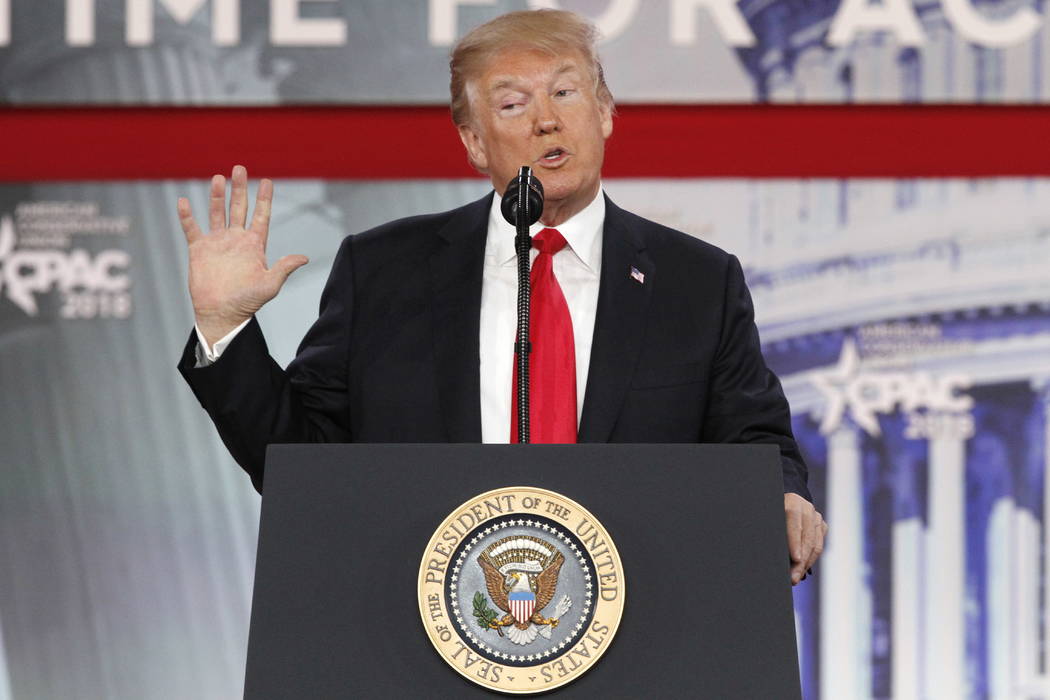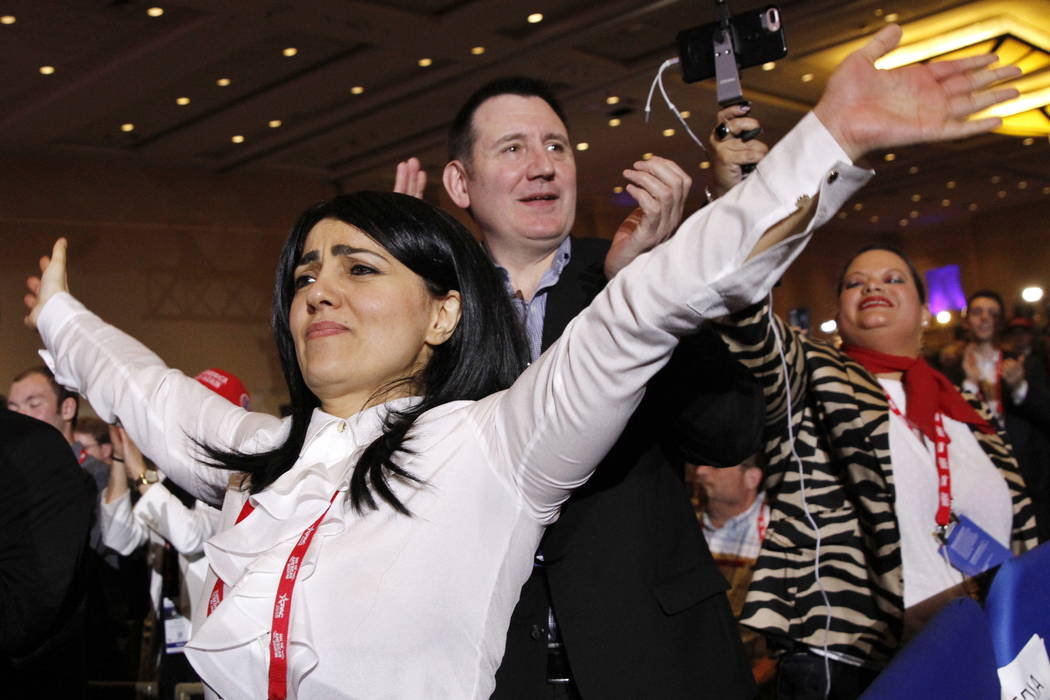For Trump and CPAC, what a difference a year makes — ANALYSIS
OXON HILL, Md. — One year ago, when the Conservative Political Action Conference convened for its annual gathering, participants were positive about Donald Trump’s 2016 election victory, gleeful that Hillary Clinton did not win, but unsure about what the future would bring. So they danced around their new leader’s ascent gingerly.
(There was also the issue of CPAC’s failure to endorse Trump as wholeheartedly as his base. In 2016, Trump ended up canceling his planned speech at CPAC under threat of a walkout, and he came in third in CPAC’s presidential straw poll.)
Matt Schlapp, whose American Conservative Union puts on the event, noticed the change this year from 2017.
“Last year I think people were a little bit still in a state of shock. You know, did this really happen?” Schlapp told the Review-Journal. “This year I think there’s more of a feeling of it’s working. For conservatives the agenda that the president’s put out there is just working so well.”
Trump was aware of the group’s misgivings. At the start of his 1-hour, 15-minute address Friday, he said, “Remember when I first started running? Because I wasn’t a politician, fortunately. But do you remember I started running and people would say, ‘Are you sure he’s a conservative?’ I think now we’ve proved that I’m a conservative, right?”
A year ago, White House Chief of Staff Reince Priebus sat with Chief Strategist Steve Bannon at a session designed to defuse stories about a feud between the two. Bannon famously announced that the Trump administration was committed to “the deconstruction of the administrative state.”
Trump later fired both aides. The important thing is “the president is still deconstructing the administrative state,” David Bossie, longtime Trump adviser and head of the conservative group Citizens United, asserted after Trump’s CPAC address.
John Cox, a businessman who is running for California governor as a Republican, said he didn’t think that Trump, a former Democrat whose positions often varied from GOP doctrine, was truly conservative.
“I didn’t vote for him,” said Cox, who has attended CPAC conferences for years.
Would he vote for Trump in 2020? “Absolutely, with bells on,” Cox answered, who is thrilled with Trump’s judicial picks and the effective U.S. assault on ISIS.
Trump still grates on Cox, who acknowledged that for all the policy pluses, “the trouble is the personality.” Cox described Trump as the opposite of President Barack Obama, who is highly likable as a human being, but whose policies offended Cox.
As a candidate in a very blue state (with no Republicans in statewide office), Cox is aware of the difficulties Trump could present for his campaign. And it’s not just because of Trump. Cox also blames the media for “unrelentingly negative” coverage.
Former New Mexico Gov. Gary Johnson thinks Trump’s tenure in the White House will make it impossible for a Republican to win statewide in another blue state, New Mexico.
“If you’re running,” he explained, “you’d be expected to defend him.”
As for Nevada’s governor’s race, Johnson predicted a Democratic win — then posited that his 2016 election loss suggests he is no expert.
It says something about CPAC that Johnson met well-wishers and selfie-seekers wherever he walked at the conference — even though he ran against Trump as a Libertarian candidate for president in 2016.
While most attendees seemed happy to embrace Trump as a fellow conservative, Johnson was not so sure. Yes, he said, Trump is conservative “in some ways. He reduced taxes — but he didn’t reduce spending and I think that’s part of the conservative equation.”
Johnson presented a view on Trump that runs contrary to what others say. He thinks Trump doesn’t rate as a conservative because he does not communicate well.
“I don’t know his thought process,” said Johnson. “Part of the art of governing is to communicate why you do things. I think he’s done a really poor job of that.”
As an example, Johnson said, he doesn’t understand Trump on Afghanistan. “What’s your information on Afghanistan that you’re doubling down on Afghanistan, instead of getting out, which is what you said during the campaign?” (Presidents can change their mind, Johnson stressed, he just wants to know what factors led to the change.)
Other CPAC attendees confided their misgivings on an off-the-record basis, but they wanted to stay on the Trump train.
Schlapp, whose wife Mercedes, a high-profile defender of conservative causes in her own right, joined the White House communications team in September, said, “The room itself with the president, we’ve never had that many people in that room. And he had a lot of fun in the speech. He connects with these people.”
Contact Debra J. Saunders at dsaunders@reviewjournal.com or 202-662-7391. Follow @DebraJSaunders on Twitter.
























